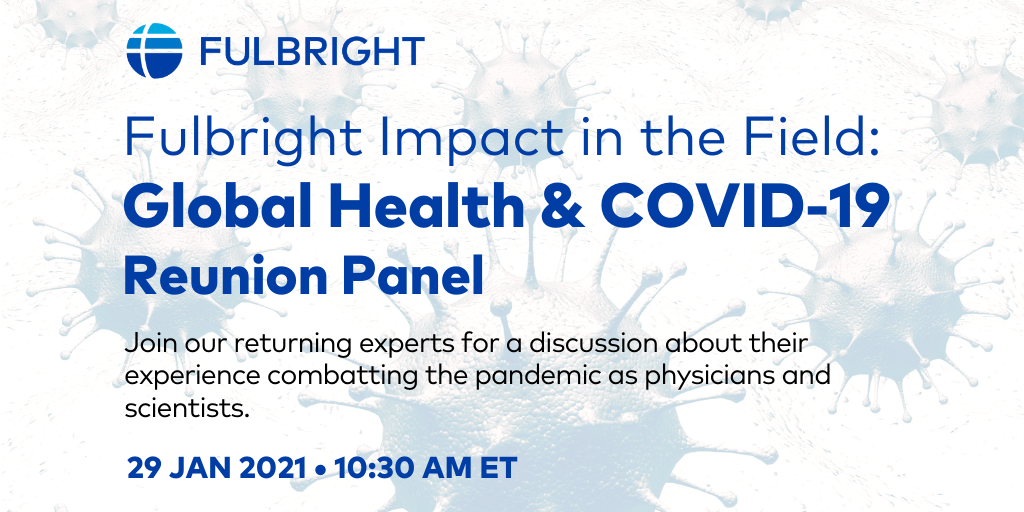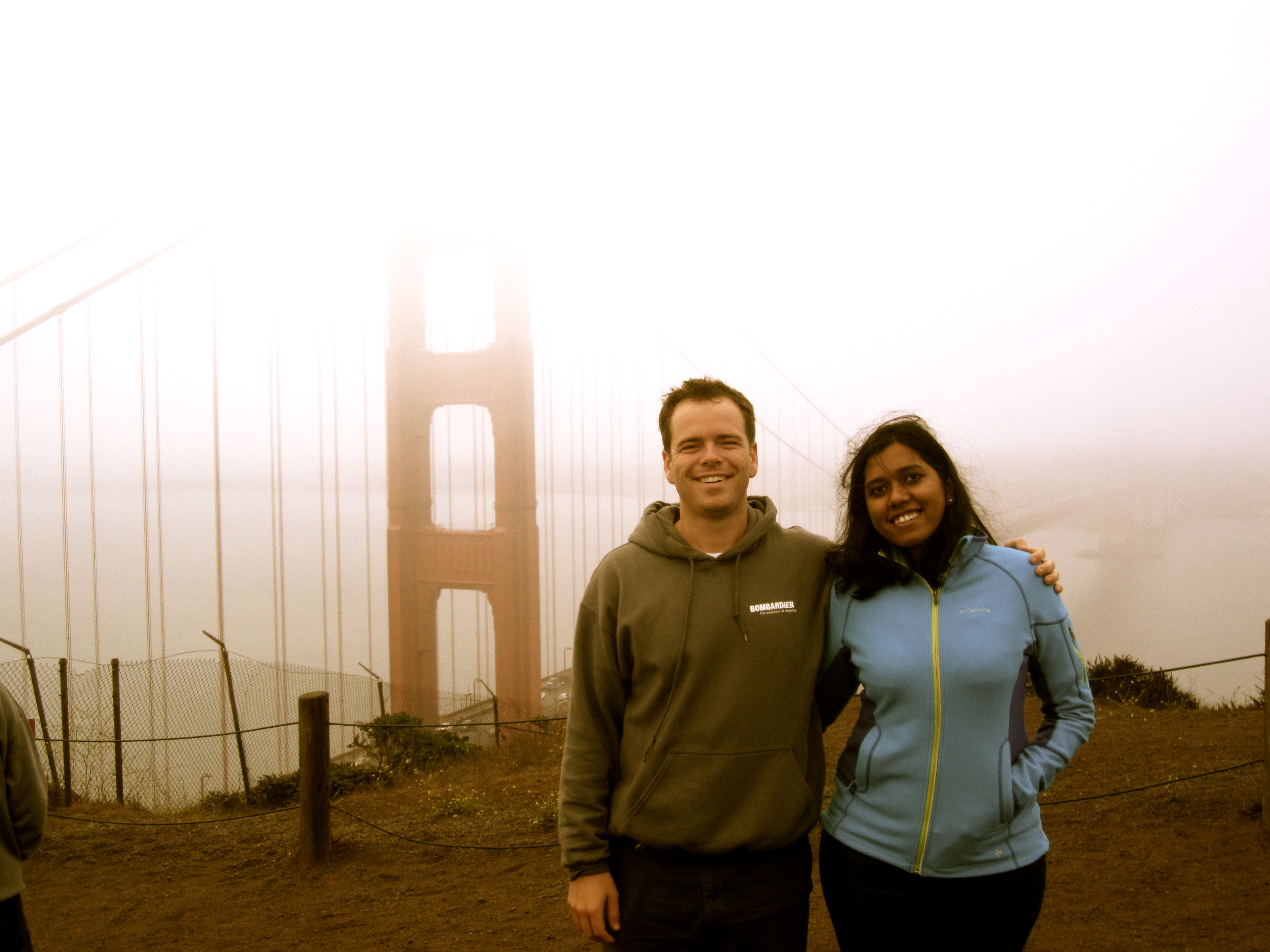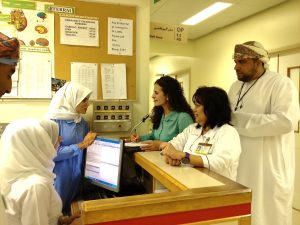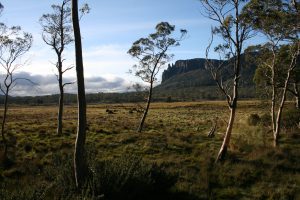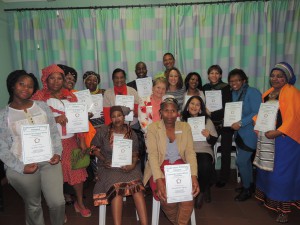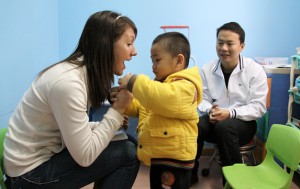“We know that infections: they don’t have borders, they don’t have governments. They don’t care about presidents, they don’t care about our political system. We have to do this together.”
-Igor Stoma, MD, PhD; 2017 Fulbright Visiting Scholar from Belarus to Memorial Sloan Kettering Cancer Center
Overview
Since the emergence of the Novel Coronavirus (COVID-19), Fulbright participants and alumni have been working tirelessly to uplift, innovate, and find solutions to challenges facing our communities and world.
The Fulbright Impact in the Field panel series, which is open to the public, provides a digital space for Fulbright alumni experts to share their insights, expertise, and Fulbright’s impact on local and global communities. The Fulbright 75th Anniversary Special “Fulbright Impact in the Field” Reunion Panel on Global Heath & COVID-19 on January 29, 2021 reunited our original panelists from the May 2020 event for a follow-up discussion.
Meet the Panelists
Participating Fulbright alumni, who are physicians and scientists, shared updates about their experiences combatting the pandemic over the past year. They discussed changes in coronavirus treatment, lessons learned about the virus, the current state of vaccine production and distribution, and more.
Moderator
Imre Varju, MD, PhD, MPH, CHES (2016 Fulbright Visiting Scholar from Hungary to Boston Children’s Hospital and Harvard Medical School) – Dr. Varju is a medical scientist and health communications specialist who is interested in sharing how to accurately communicate risk and public health developments.
Panelists
Serena Dasani, MD, MBA (2013 Fulbright ETA to Indonesia) – Dr. Dasani is an anesthesia resident physician at the Brigham and Women’s Hospital in Boston, Massachusetts, and has conducted research quantifying the financial impact that COVID-19 had on U.S. hospitals.
Javier Jaimes, DVM, MS, MBA, PhD (2014 Foreign Fulbright Student from Colombia to Cornell University) – Dr. Jaimes is a virologist working in research and education. He is currently studying the pathogenesis of the SARS-Co V-2, the virus behind the COVID-19 emergency.
Igor Stoma, MD, PhD (2017 Fulbright Visiting Scholar from Belarus to Memorial Sloan Kettering Cancer Center) – Dr. Stoma is Chancellor and Professor of Infectious Diseases at Gomel State Medical University in Belarus who consults on the treatment of the most complex cases of COVID-19.
Charlotte Summers, PhD, MRCP, FFICM (2013 Fulbright Visiting Scholar from the United Kingdom to University of California, San Francisco) – Dr. Summers is an academic critical care physician at Cambridge with a passion for translating basic science into therapies for critically ill patients.
Benjamin tenOever, PhD (2014 U.S. Scholar to Institut Pasteur and Ecole Normale Superieure in France) – Dr. tenOever is Director of the Virus Engineering Center for Therapeutics and Research (VECToR) at Mount Sinai and is involved in an international consortium to develop vaccines and antivirals against Novel Coronavirus (SARS-Co V-2).
Key Takeaways
During the discussion, panelists reaffirmed the importance of:
- Public health planning and management for faster response to emergencies, including pandemics
- Accurate and timely health communication to combat misinformation
- Solving complex problems via international collaboration and engagement
After an unprecedented period of research, vaccine testing, and new solutions to public health challenges, the panelists look forward to increased focus on:
- Encouraging empathy among the general population
- Promoting basic scientific literacy
- Improving healthcare equity and access around the world
To watch the panelists dive into these relevant discussions, click here.
To learn about upcoming Fulbright Impact in the Field panels and other Fulbright 75th anniversary events, sign up for the newsletter.

